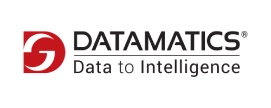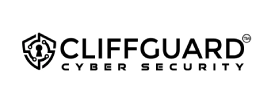









PCI DSS certification in Abu Dhabi plays a major role in building a strong trust between businesses and customers by ensuring a secure payment environment. Securing payment transactions is a top concern for companies in today’s digital environment, particularly in a major international financial center like Abu Dhabi. A widely accepted security framework created to safeguard private cardholder data and stop payment fraud is the Payment Card Industry Data Security Standard (PCI DSS). For companies handling credit card transactions, PCI DSS certification is crucial because it guarantees adherence to strict security protocols that protect financial information.
E-commerce and digital payments have all grown quickly in Abu Dhabi, a major financial and commercial hub in the Middle East. Due to the heightened risk of cyberattacks and data breaches brought about by this expansion, PCI DSS certification in Abu Dhabi is now essential for companies doing business in those area. Banks, e-commerce sites, hospitality companies, and payment service providers are among the institutions that must have the certification in order to process, store, or transfer credit card information.
In conclusion, PCI DSS certification in Abu Dhabi is a vital requirement for businesses that aim to protect customer data, enhance security resilience, and maintain regulatory compliance in an evolving digital economy.
What is PCI DSS Certification ?
PCI DSS certification shows that the company or organization has complied with the Payment Card Industry Data Security Standards (PCI DSS). Major credit card companies have devised a mechanism for obtaining this certification.
Key Benefits of PCI DSS certification in Abu Dhabi
Businesses can benefit greatly from PCI DSS certification in Abu Dhabi, especially those engaged in financial services, e-commerce, and payment processing.
- Enhanced Data Security : PCI DSS certification in Abu Dhabi guarantees that companies use strong security measures, such as firewalls, access controls, and encryption, to safeguard critical cardholder data.So that Customers’ trust is increased as a result of creating a safe environment for transactions.
- Legal and Regulatory : PCI DSS registration in Abu Dhabi assists companies in adhering to local and international data protection laws, including the Data Protection Law of the United Arab Emirates and international standards.
- Decreased Chance of Monetary Losses : PCI DSS certification in Abu Dhabi in preventing fraud, expensive data breaches, and related financial consequences.
- Global Market Access : PCI DSS certification in Abu Dhabi is an international standard.By guaranteeing adherence to international security standards, certification allows companies to collaborate with international payment processors and draw in clients from around the world.
Our Services
- ISO Certification
- ISO 9001 Certification
- ISO 14001 Certification
- ISO 45001 Certification
- ISO 22000 Certification
- ISO 17025 Certification
- ISO 27001 Certification
- ISO 13485 Certification
- ISO 17025 Certification
- ISO 27701 Certification
- ISO 20000-1 Certification
- ISO 27032 Certification
- ISO 22483 Certification
- ISO 26000 Certification
- ISO 22301 Certification
- ISO 42001 Certification
- ISO 27017 Certification
- ISO 27018 Certification
- ISO 50001 Certification
- ISO 27014 Certification
- ISO 29990 Certification
- ISO 37001 Certification
- ISO 41001 Certification
- ISO 21001 Certification
- ISO 55001 Certification
- ISO 28000 Certification
- ISO 22716 Certification
- ISO 15189 Certification
1:1
Guided Platform Implementation
100%
Audit
Success
10x
Faster than
manual methods
200+
Integrations and
powerful APIS
>90%
Process
automation
How much does PCI DSS Cost in Abu Dhabi ?
The size of the company, the intricacy of its payment processing systems, and the necessary level of compliance all affect how much PCI DSS costs in Abu Dhabi.
Organizational Size: Costs are usually lower for smaller businesses with simpler processes and fewer transactions. Costs may be higher for larger businesses with numerous locations, sophisticated payment systems, and huge transaction volumes.
Employee Awareness and Training : It is crucial to train staff members on PCI DSS regulations and security best practices. The number of employees and the training provider can affect the cost of training programs.
Maintenance of Annual Compliance :Complying with PCI DSS is a continuous process. Annual compliance maintenance for businesses entails ongoing expenses for audits, scans, and updates.
What Document is required for PCI DSS certification in Abu Dhabi ?
The main documents needed to implement PCI DSS certification in Abu Dhabi are as follows:
Policy for Information Security : A crucial document that describes an organization’s dedication to safeguarding sensitive data, especially cardholder information, is an information security policy.It acts as a thorough manual for all staff members, guaranteeing that they are aware of their obligations with regard to data security and the significance of protecting cardholder information.
Report on Risk Assessment : Finding weaknesses in the company’s systems and procedures that manage cardholder data requires a risk assessment report. The process utilized to evaluate risks, spot possible threats, and gauge how these risks will affect the company should all be covered in detail in this paper.
Compliance Attestation (AOC): An official declaration attesting to an organization’s compliance with PCI DSS rules is called the Attestation of Compliance (AOC). After a formal evaluation by a Qualified Security Assessor (QSA), this document is filled out and sent as evidence of compliance to acquiring banks or credit card companies.
Acceptable Use Policy: How staff members can use company technologies and data is outlined in an acceptable use policy. The acceptable use of corporate resources, such as computers, networks, and internet access, should be outlined in this document.
How to implement PCI DSS certification in Abu Dhabi ?
Obtain PCI DSS certification in Abu Dhabi and safeguard private financial data from online attacks, businesses need to adhere to a methodical procedure.
Security Measures : Assessing the current security architecture is the first step in putting PCI DSS compliance into practice. Organizations can decide whether security controls require implementation or improvement by having a clear understanding of the current compliance situation.
Strategy for Compliance: Following the evaluation of security flaws, companies must develop a thorough compliance plan. To safeguard cardholder data, this entails creating security rules, putting encryption techniques into practice, and making sure access controls are in place.
Security Controls : To comply with PCI DSS requirements, organizations must implement the required security measures. This entails protecting sensitive data, limiting access to payment card information, keeping a network safe, and putting strong authentication procedures in place.
PCI DSS audit : PCI DSS compliance calls for ongoing oversight and is not a one-time event. To find such flaws, companies should conduct frequent penetration tests, vulnerability assessments, and security audits.
Maintenance of certification : Businesses must submit to an official PCI DSS assessment by a QSA or (SAQ), depending on the amount of transactions, after all security measures have been implemented. They are certified by PCI DSS once they have fulfilled all standards.
Product Certification
Other Certification
Request a Call Back
What type of company in Abu Dhabi is suitable for PCI DSS certification ?
Several sectors are particularly suited for PCI DSS certification in Abu Dhabi due to their involvement in processing, storing, or transmitting payment card information.
- Abu Dhabi’s E-commerce industry : In terms of PCI DSS certification criteria, e-commerce companies are leading the way. These businesses handle a lot of credit card transactions, making them easy targets for online attacks. They can protect consumer data, foster trust, and prevent expensive data breaches by adhering to PCI DSS.
- Abu Dhabi’s Financial Services : Because they deal with sensitive financial data on a regular basis, financial institutions such as banks and payment processors are required to follow PCI DSS guidelines.
- Telecommunication : Because they handle private client data and financial information, telecommunications companies are prime targets for cybercriminals. Telecom businesses may guarantee safe client data handling and reduce the risk of data breaches by earning PCI DSS certification.
- Medical Professionals :PCI DSS certification is also required for healthcare firms that handle patient billing information or take credit card payments for services.
Role of PCI DSS consultant in Abu Dhabi for certification Process
PCI DSS certification can be a difficult and complicated procedure that calls for professional advice in order to satisfy strict security requirements. In order to ensure a smooth and effective compliance procedure, a PCI DSS consultant in Abu Dhabi is essential in helping firms along the certification path. These experts offer specific knowledge to assist companies in evaluating, putting into practice, and maintaining security protocols to safeguard cardholder information.
Performing a gap analysis to assess an organization’s present security posture is one of the main duties of a PCI DSS consultant. A PCI DSS consultant also helps with the creation of a compliance plan that is customized to the needs of the company. A PCI DSS consultant’s ability to assist companies with the technical installation of security controls is another crucial function. This entails making certain that intrusion detection systems, firewalls, and encryption techniques are set up correctly. Lastly, after certification, a PCI DSS consultant in Abu Dhabi is essential to continued compliance maintenance. These are the major role of PCI DSS consultant.
Levon ventures – Leading PCI DSS consultant in Abu Dhabi
As one of the top PCI DSS consultants in Abu Dhabi, Levon Ventures is distinguished by its dedication to client satisfaction and methodical approach to compliance. With an emphasis on affordability and prompt delivery, Levon Ventures has made a name for itself as a reliable partner for companies trying to protect their credit card transactions.
Levon Ventures takes a methodical approach to PCI DSS certification in Abu Dhabi, which is followed by the creation of an extensive action plan customized for each customer. In addition to facilitating easier compliance, this methodical approach gives clients confidence as they negotiate the complexity of PCI DSS standards. They are a leader in the industry and a perfect partner for businesses because of their emphasis on client happiness, economical solutions, and prompt delivery.
Our Services
Stay Connected with latest relevant
#PCIDSSAbuDhabi, #PCIDSSCertificationAbuDhabi, #PCIDSSConsultantsAbuDhabi, #PCIDSSCertificationProcessAbuDhabi, #PCIDSSCertificationCostAbuDhabi, #PCIDSSCertificationRequirementsAbuDhabi, #PCIDSSImplementationServicesAbuDhabi, #PCIDSSAccreditedCertificationAbuDhabi, #PCIDSSForSmallBusinessesAbuDhabi, #PCIDSSStandardsAbuDhabi, #PCIDSSConsultancyServicesAbuDhabi, #PCIDSSCertificationCompaniesAbuDhabi, #HowToGetPCIDSSCertificationAbuDhabi, #PCIDSSDocumentationServicesAbuDhabi, #PCIDSSAuditServicesAbuDhabi, #PCIDSSQualityManagementCertificationAbuDhabi, #PCIDSSComplianceAbuDhabi, #PCIDSSInternalAuditAbuDhabi, #PCIDSSRenewalAbuDhabi, #PCIDSSRegistrationAbuDhabi, #PCIDSSCertificationExpertsAbuDhabi, #PCIDSSCertificationProcessStepsAbuDhabi, #PCIDSSCertificationConsultancyFeesAbuDhabi, #PCIDSScertificationAbuDhabi, #PCIDSSConsultingFirmsAbuDhabi, #PCIDSSCertificationOnlineAbuDhabi
Frequently asked questions
The collection of guidelines that guarantee the safe management of cardholder data is known as PCI DSS (Payment Card Industry Data Security Standard) compliance.
Yes, all organizations handling cardholder data from major credit card brands are required to adhere to the Payment Card Industry Data Security Standard, or PCI DSS in Abu Dhabi
The PCI DSS certification is given once a year. Every year, the audits have to be completed. For an organization to remain certified, system security must be maintained.
You must put the required security measures in place, have a Qualified Security Assessor (QSA) formally evaluate your compliance, and submit a compliance report to the PCI Security Standards Council in order to obtain PCI DSS certification in Abu Dhabi.
Indeed, there are four levels of PCI DSS compliance, which are determined by the amount of credit card transactions the business does each year.
- Enhanced Security: It aids in preventing fraud and breaches involving sensitive cardholder data.
- Client Trust: By proving your dedication to data protection, certification boosts client trust in your company.
The size of the company and its level of compliance at the moment can affect how long it takes to become PCI DSS certified.
The cost of PCI DSS certification in Abu Dhabi varies based on factors such as business size and complexity but generally includes assessment fees, QSA fees, and potential remediation costs.
PCI DSS certification in Abu Dhabi is mandatory for all organization that store, handle, process or transmit cardholder data




